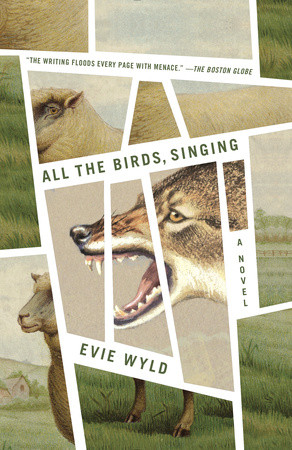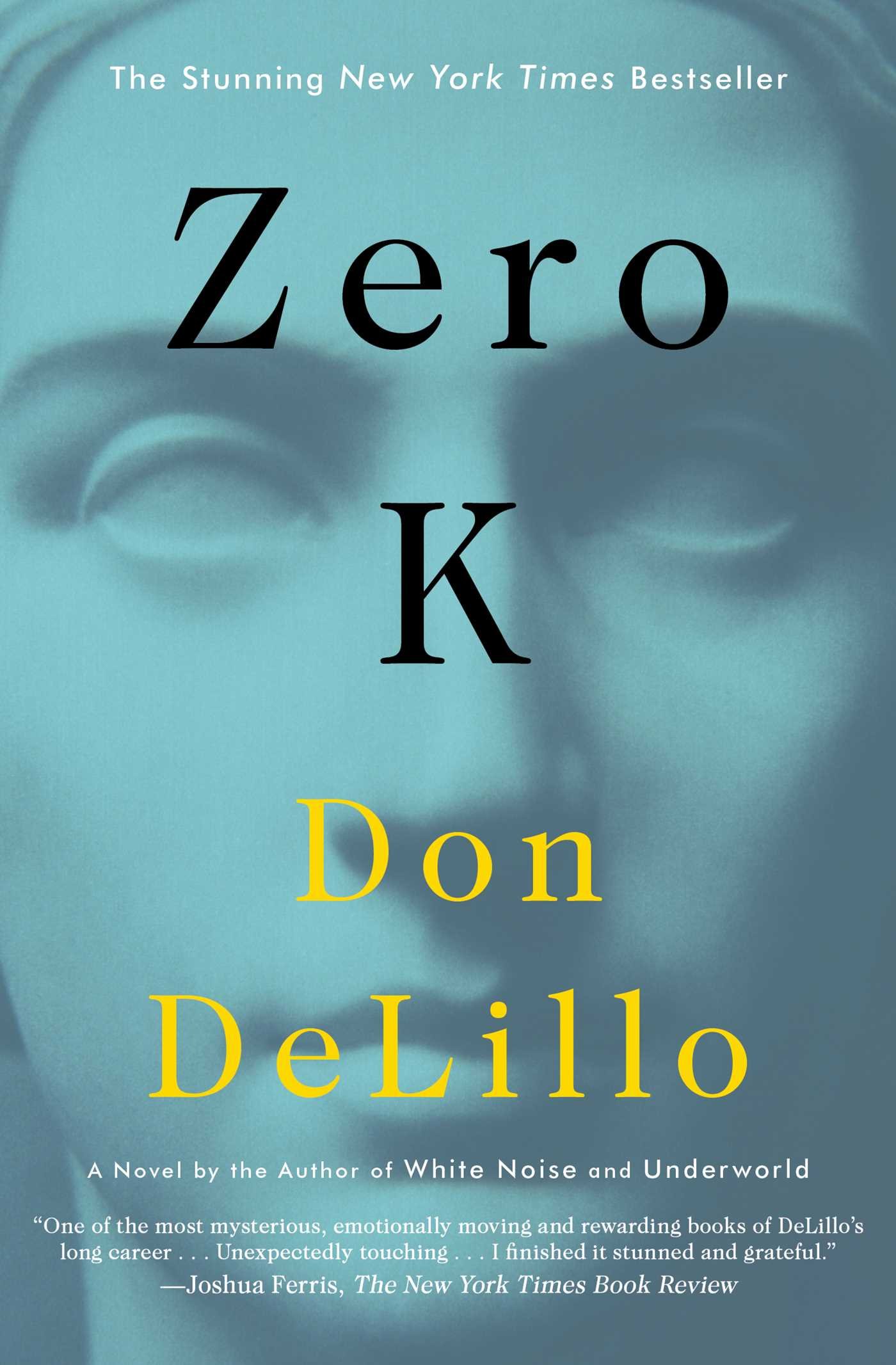Literary fiction always begs to be contemplated, to be swept away by tone and rhythm and thoughtful imagery. How easy is it for authors, then, to straddle the line of beauty and revelation, narrative and emotion? Is deeper meaning more often found in the types of situations characters face, or in the open-ended questions posed? There may not be a single formula for creating a tale that lifts you away from the page and surprisingly inward, but the authors of these seven novels have skillsets that will keep you engaged far beyond their specific stories—with the ability to linger beside you for years to come, not unlike the haunting of a ghost.

7 Literary Novels Bound to Haunt You (in the Best Way)
Talk about books being able to transport you: Louis’s story excels in this arena, depicting an atmospheric 1847 Paris from a photographer’s eyes. A photographer who is slowly losing his grip on reality as the fear of mercury poisoning and doomsday sets in. What better way to face a perceived end than with a top ten list of items to capture on film, calling for a chance to chase past loves and reflect upon the world. And what’s an unprecedented adventure without a pair of trusty sidekicks: in this case, a poet named Baudelaire and a prostitute named Pigeon.
The debut novel from the New York Times bestselling author of The Last Painting of Sara de Vos reimagines the life of Louis Daguerre, the inventor of photography, who becomes convinced that the world is going to end when his mind unravels due to mercury poisoning. He is determined to reconnect with the only woman he has ever loved before the End comes.
Louis Daguerre's story is set against the backdrop of a Paris prone to bohemian excess and social unrest. Poets and dandies debate art and style in the cafes while students and rebels fill the garrets with revolutionary talk and gun smoke. It is here, amid this strange and beguiling setting, that Louis Daguerre sets off to capture his doomsday subjects. Louis enlists the help of the womanizing poet Charles Baudelaire, known to the salon set as the "Prince of Clouds" and a jaded but beautiful prostitute named Pigeon.
Together they scour the Paris underworld for images worthy of Daguerre's list. But Louis is also confronted by a chance to reunite with the only woman he's ever loved. Half a lifetime ago, Isobel Le Fournier kissed Louis Daguerre in a wine cave outside of Orleans. The result was a proposal, a rejection, and a misunderstanding that outlasted three kings and an emperor. Now, in the countdown to his apocalypse, Louis wants to understand why he has carried the memory of that kiss for so long.
MENTIONED IN:
A striking cover is often all it takes to pull me in, and this black-and-white image is surprisingly evocative. There’s something so iconic and terrifying about survival stories, especially when set against a cold, rural winter. Things could go horribly wrong, or an exhilarating victory could be won, and often there’s just enough uncertainty to keep you on edge while also remaining hopeful. The combination is especially poignant here as we follow a missing man with Alzheimer’s, who has wandered off into an unforgiving landscape. The search to find him involves a small group with other tragedies on their minds, proving that life is often a coin toss between love and loss.
On a cold January morning Susan leaves her husband alone for a few minutes and returns to find him gone. Suffering from dementia, no longer able to dress or feed or wash himself, he has wandered alone into a frigid landscape with no sense of home or direction. Lost…
Over the course of one weekend, the massive search for her husband brings Susan together with Jeff, a search and rescue expert and social worker preoccupied with his young wife’s betrayal. In Jeff’s care is Corey, a mute eleven-year-old boy who has been abandoned by his family after accidentally setting a tragic fire. As the temperature drops and the search and rescue effort threatens to become one of search and recovery, they each confront haunting memories and difficult choices that will have an unexpected impact on their collective future...
From the intersection of these three lives emerges an arresting portrait of the shifting terrain of marriage and the devastating effects of physical and psychological damage. Written in spare, beautiful prose, Lost explores the lengths we will go to take care of someone, and the ways in which responsibility, love, and sorrow can bind people together.
MENTIONED IN:
This cover gives the opposite vibe of LOST—active, bold—and yet in a sense appears just as isolated, splintered. In fact, Jake lives on a farm on an island that’s constantly exposed to the elements, her only chosen companions a dog and some sheep. Of course, this life of solitude cannot last for long; in Jake’s case, it’s picked apart slowly instead of shattered, an arguably more sinister way of intrusion. Each night, another of Jake’s sheep is killed. To what end? And what happens when there are no more sheep? Two questions I asked myself as I flipped through pages and scanned for answers, waiting for secrets from Jake’s past to be revealed.
The title of this book intrigued me, and the fact that it was touted for fans of Alice Walker and Toni Morrison. Set in the rural South, we’re thrust into the life of Anna Anderson Thomas—and what a life it is. A mother to five boys, another child on the way, Anna’s days bring no shortage of tasks and challenges. A lost job, an impending birth, an often-heartbreaking family dynamic, it’s easy to feel strongly for the characters and Anna’s unborn child, who narrates. It’s even easier to continue thinking about them days after, considering all the factors that contributed to their circumstances.
For fans of Alice Walker and Toni Morrison—a haunting debut novel that lays bare the universal truths that bind all families.
Brian Keith Jackson’s acclaimed debut novel treads the same rich literary soil as the work of Alice Walker and Toni Morrison—with equally memorable results. Evoking a world of casual prejudice and commonplace poverty, Jackson tells the haunting story of Anna Anderson Thomas, whose life in the rural South has edged slowly toward loneliness. Married in her youth to her beloved J.T., she has devoted her days to raising their five boys, all while stepping softly around her husband’s vast silences. But now, with their sixth child on the way—a girl this time, she is sure—Anna faces a challenge that threatens to destroy the family she’s fought so hard to preserve.
Pulsing with raw emotional power and earthy humor, and narrated in part by the omniscient voice of Anna’s unborn child, The View from Here builds to a conclusion that both shocks and heals—and lays bare the universal truths that bind all families.
This book seems to come up again and again among my friends, to the tune of “remember that wild read with the crazy ending?” It begins in suburban sprawl: a young mother with two young children, tending to their needs and trying to reconcile her own. Then, every mother’s worst nightmare: an intruder. But not just any intruder–one who can guess her movements, whose knowledge runs too deep. THE NEED will move you and it will stick with you, and what more can you ask of a book than that?
***LONGLISTED FOR THE NATIONAL BOOK AWARD IN FICTION***
“An extraordinary and dazzlingly original work from one of our most gifted and interesting writers” (Emily St. John Mandel, author of The Glass Hotel). The Need, which finds a mother of two young children grappling with the dualities of motherhood after confronting a masked intruder in her home, is “like nothing you’ve ever read before…in a good way” (People).
When Molly, home alone with her two young children, hears footsteps in the living room, she tries to convince herself it’s the sleep deprivation. She’s been hearing things these days. Startling at loud noises. Imagining the worst-case scenario. It’s what mothers do, she knows.
But then the footsteps come again, and she catches a glimpse of movement.
Suddenly Molly finds herself face-to-face with an intruder who knows far too much about her and her family. As she attempts to protect those she loves most, Molly must also acknowledge her own frailty. Molly slips down an existential rabbit hole where she must confront the dualities of motherhood: the ecstasy and the dread; the languor and the ferocity; the banality and the transcendence as the book hurtles toward a mind-bending conclusion.
In The Need, Helen Phillips has created a subversive, speculative thriller that comes to life through blazing, arresting prose and gorgeous, haunting imagery. “Brilliant” (Entertainment Weekly), “grotesque and lovely” (The New York Times Book Review, Editor’s Choice), and “wildly captivating” (O, The Oprah Magazine), The Need is a glorious celebration of the bizarre and beautiful nature of our everyday lives and “showcases an extraordinary writer at her electrifying best” (Publishers Weekly, starred review).
MENTIONED IN:
A friend sent me this with a “must-read” tag attached, and you never ignore a book friend with good taste. DELPHI was unlike anything I’ve read recently, almost a series of vignettes with a more serious backdrop. I was reminded of a camera lens in and out of focus: first a family scene, a lack of connection—grasping, wondering. A snapshot shift to the pandemic at large: a mood, an image. Mythological undertones, an interweaving of meaning. You’re never in one moment for too long–and always eager to find what plot point or musings will come next.
For readers of Jenny Offill, Deborah Levy, and Olivia Laing, an exquisite debut novel about a classics academic researching prophecy in the ancient world, just as the pandemic descends and all visions of her own family’s future begin to blur.
Covid-19 has arrived in London, and the entire world quickly succumbs to the surreal, chaotic mundanity of screens, isolation, and the disasters small and large that have plagued recent history. As our unnamed narrator—a classics academic immersed in her studies of ancient prophecies—navigates the tightening grip of lockdown, a marriage in crisis, and a ten-year-old son who seems increasingly unreachable, she becomes obsessed with predicting the future. Shifting her focus from chiromancy (prophecy by palm reading) to zoomancy (prophecy by animal behavior) to oenomancy (prophecy by wine), she fails to notice the future creeping into the heart of her very own home, and when she finally does, the threat has already breached the gates.
Brainy and ominous, funny and sharp, Delphi is a snapshot and a time capsule—it both demythologizes our current moment and places our reality in the context of myth. Clare Pollard has delivered one of our first great novels of this terrible moment, a mesmerizing story of our pasts, our presents, and our futures, and how we keep on living in a world that is ever-more uncertain and absurd.
In ZERO K, a strange sort of work and a family reunion under undesirable circumstances set the stage for a debate on the finality of death. I’ve been captivated by Don DeLillo since reading WHITE NOISE during a college English course, impressed by the way he weaves storytelling and questions of progress, technology, and human desire. This time, DeLillo places us in a world where biomedical advances can create a form of life beyond physical death, seeing a father and son on opposite sides of very different equations.
Photo credit: iStock / Andrii Medvediuk


















